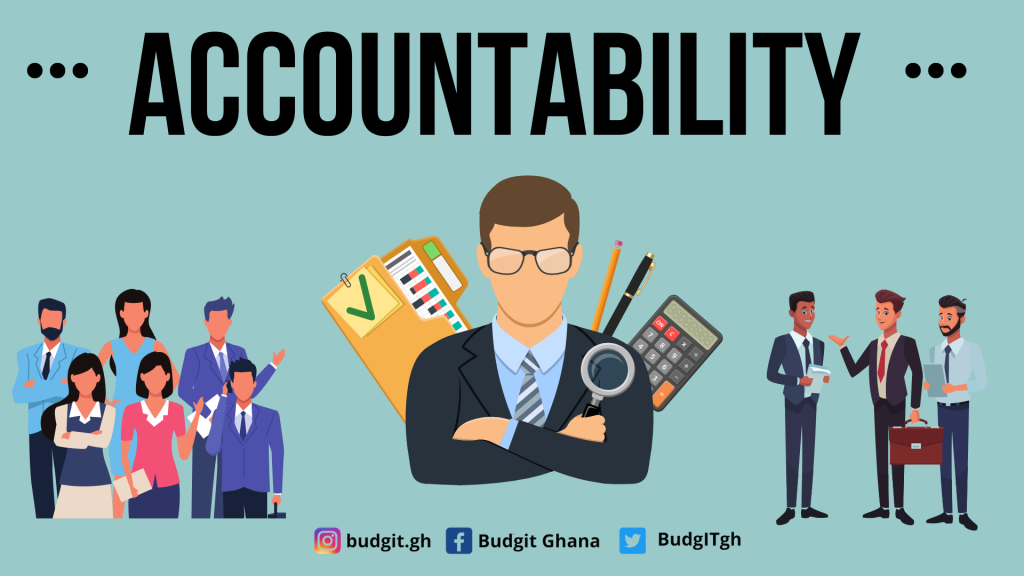HEALTH SECTOR ACCOUNTABILITY IN THE MIDST OF COVID-19 PANDEMIC I
The word Accountability has always been widely used in the positive sense to connote responsibility and answerability. However, the same word in implementation can make people take an offensive stance against the person demanding accountability.
Accountability according to the Merriam-Webster dictionary is the quality or state of being accountable especially: an obligation or willingness to accept responsibility or to account for one’s actions.
What does accountability mean to a person?
Accountable means obligated to explain, justify, and take responsibility for one’s actions, and to answer to someone, such as a person with more authority. The state of being accountable is accountability. The word accountable is often used in the context of individuals taking responsibility for their actions.
To begin with; during the Fifteenth Ordinary Session of the Assembly of the African Union held on July 25-27, 2010 in Kampala – Uganda, African leaders recognized the need for strong, decentralized health programs with linkages to civil society and the private sector entities, full community participation in program design and implementation, and adaptive approaches to local, political, socio-cultural and administrative environments. Despite the increasing use of the word accountability, there is limited evidence on how it has been used in the health sector.
Health sector accountability involves all actors including state and non-state actors to be answerable to the citizenry about the products and services they are mandated to offer. This includes accessible, equitable, quality healthcare and service delivery for all citizens to boost good health and well-being.
In Ghana, the Ministry of Health is the body mandated by law to formulate policies and implement government decisions in the health sector.
Additionally, the Ghana Health Service (GHS) is the body mandated to cater for the overall well-being of all Ghanaians and Non-Ghanaians within the jurisdiction. What is more, GHS provides and prudently manages comprehensive and accessible health services with special emphasis on primary health care at Ghana’s regional, district and sub-district levels in accordance with approved national policies.
One of such engagements that aim at accountability in the health sector in Africa is the Covid-19 Transparency and Accountability Project in Africa (CTAP). CTAP is a civil society-led effort to bolster citizen engagement, promote change in how governments use public resources and increase the capacity of governments to meet people’s needs.
Research conducted by CTAP implementing bodies’ across countries in sub-Saharan Africa cites many instances of waste by government machinery, including mismanagement and blatant corruption in the disbursement of the covid-19 funds and vaccines. In addition issues like unlawful procurement, political use of funds and other reliefs, and the diversion of funds into individual accounts led many communities to deal with the hardship of the covid-19 pandemic in economic and social isolation.
The covid-19 pandemic has increased and widened the gap in accessing healthcare in most sub – Saharan Africa.
Transparency and Accountability within the health sector in Ghana have been a hard nut to crack since procedures and regulations are such that it is hard to track some activities for service delivery and implementation.
In summary, the billion-dollar question is who should be held accountable for the mismanagement and diversion of funds into individual bank accounts. How do citizens demand accountability and what are the laid down procedures in requesting and demanding accountability from public officials?
To be continued
By: Jennifer Addochoe Moffatt
References
- https://au.int/sites/default/files/decisions/9630-assembly_en_25_27_july_2010_bcp_assembly_of_the_african_union_fifteenth_ordinary_session.pdf
- https://www.moh.gov.gh/functions/
- https://www.merriam-webster.com/
- https://bmcpublichealth.biomedcentral.com/articles/10.1186/s12889-018-5407-8
- https://ghana.budgit.org/2022/08/17/ghana-ctap-health-sector-transparency-and-accountability/
- https://ghana.budgit.org/2022/08/04/the-c-tap-initiative-budgit-ghana-ada-foah-town-hall-meeting/
